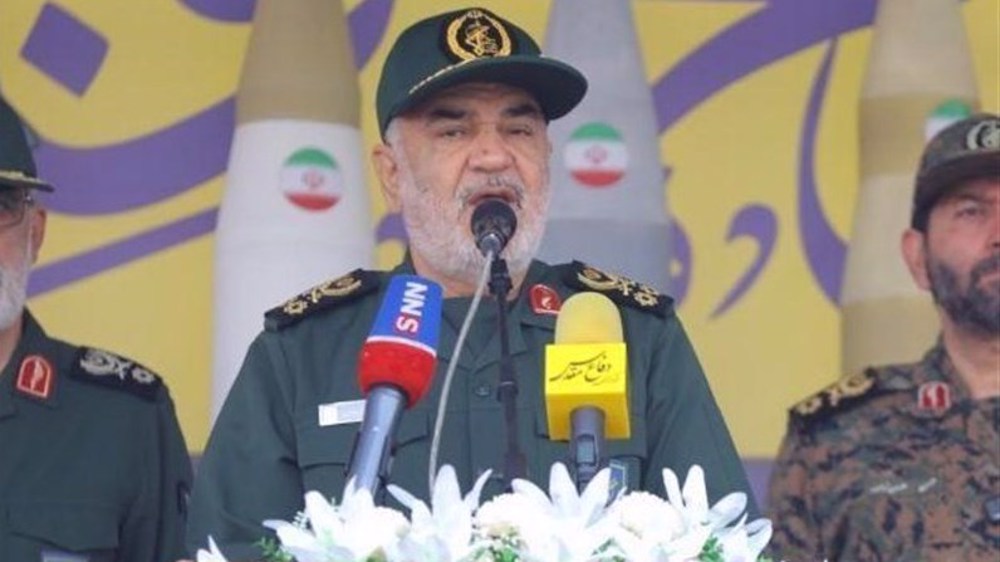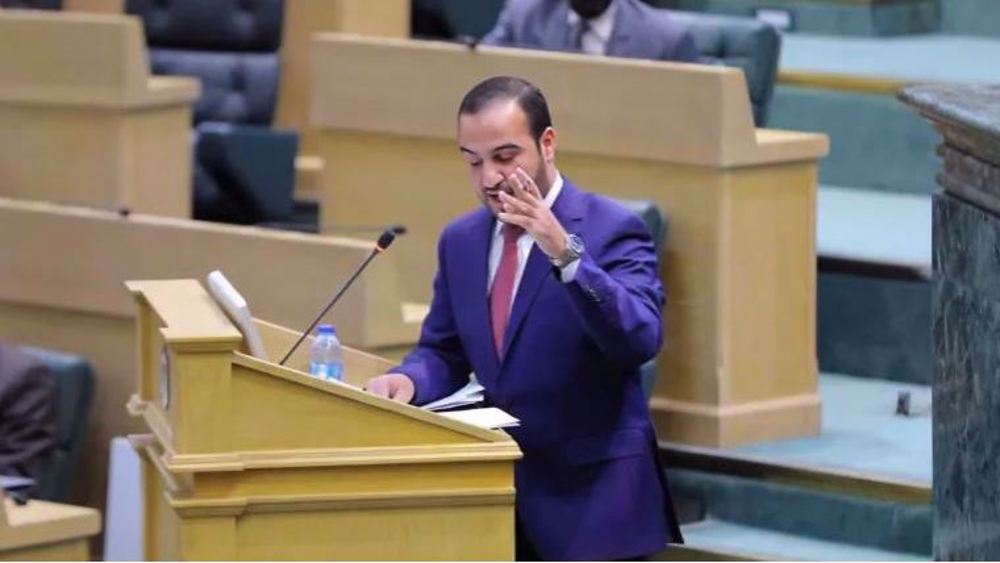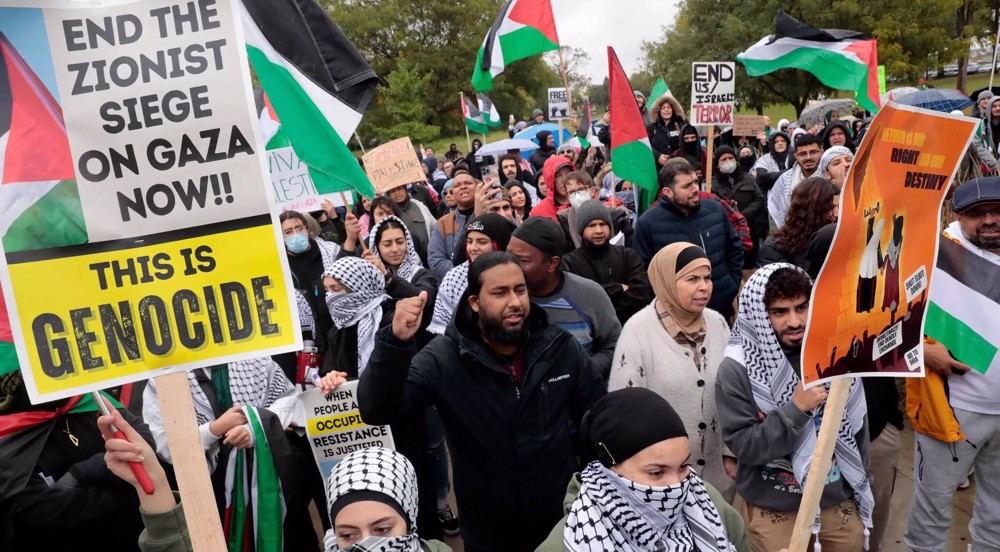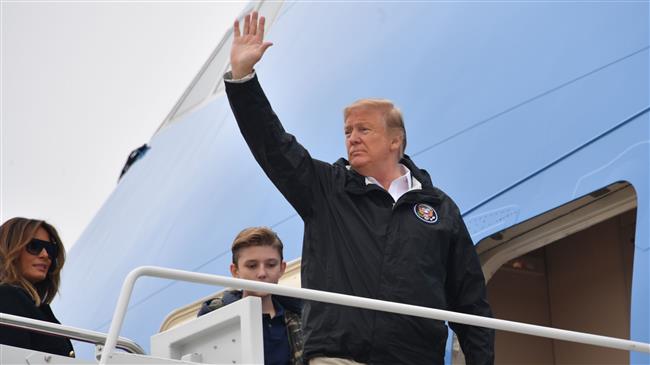Israelis voting in general elections, with main contenders neck and neck
People in the Israeli-occupied territories are voting in the 2019 general elections, with a tight race expected between corruption-tainted Prime Minister Benjamin Netanyahu of the right-wing Likud party and centrist Benny Gantz of the Blue and White alliance.
Polling stations opened at 7 a.m. local time (0400 GMT) and will close at 10 p.m. (1900 GMT).
Almost 6,340,000 people are eligible to cast their ballots to elect 120 members of the 21st Israeli parliament, known as the Knesset.
Voters will choose between a total of 39 parties running in the first Knesset elections since 2015. The final results are not expected until early Wednesday.
According to a final Channel 13 News poll released on Friday evening, the Likud and the Blue and White are both tied with 28 seats each.
Israel’s right-wing bloc would win 66 Knesset seats, compared to 54 for the center-left parties, the survey predicted.
Netanyahu, who is seeking a fifth term in office, has been facing calls for him to step down over bribery and other corruption charges. He is involved and has been investigated in at least three criminal cases.
At a rally in Jerusalem al-Quds on Monday, Netanyahu warned that his right-wing party was in danger of losing its decade-long run in power.
He also demanded that his supporters turn out at polling stations and not be “complacent.”
Also in a last-minute promise to lure votes, the Israeli premier said that he would annex settlements in the occupied West Bank if he wins another term.
Gantz, the former military chief of staff, said the prime minister’s pledge to extend Israeli “sovereignty” to settlements in the occupied West Bank was “just an electioneering stunt,” and vowed to form “a cabinet of reconciliation” if elected.
Gantz also dismissed Netanyahu’s assertion that the right-wing rule was at stake in the elections.
“The right is not in danger, Netanyahu is in danger. It is not a security threat, but a legal one,” he said.
He further accused Netanyahu of running “a desperate campaign in order to overcome his legal problems.”
The Israeli prime minister has, over the past months, witnessed a sharp decline in his popularity rate among the Israeli Arab population, after his administration drafted a hugely racist bill declaring Israel “the nation-state of the Jewish people,” which was passed by the Knesset last July.
Netanyahu playing the ‘Trump card’
To cover up the serious graft allegations swirling around him and secure another win, Netanyahu has been heavily relying on what analysts call his “Trump card.”
Inspired by US President Donald Trump, a staunch supporter of Netanyahu, the Israeli premier has dismissed the corruption charges against him as a “witch hunt.”
Netanyahu’s campaign speeches, billboards and social media videos have heavily featured Trump’s pictures and statements as well as the anti-Palestine actions he has taken in support of Netanyahu’s hawkish agenda.

Since taking office in 2016 until Israel’s election eve, Trump has been showering Netanyahu with political gifts, including moving Washington’s embassy to the occupied Jerusalem al-Quds, cutting aid to Palestinians, withdrawing the US from the 2015 Iran nuclear deal, as well as recognizing the regime’s annexation of Syria’s Golan Heights.
The latest such gift was reserved for the night before Israel’s elections, when Trump, in an unprecedented and highly controversial move, blacklisted Iran’s Islamic Revolution Guards Corps (IRGC) as a “terrorist organization.”
Trump gave rise to speculation in February that he was attempting to meddle in the regime’s elections after he shared a photo directly from Netanyahu’s Instagram account, which showed an election poster made by the ruling Likud party of he and the prime minister shaking hands and smiling.
VIDEO | Former FBI agent criticizes US Congress for 'outright corruption'
IRGC chief urges Muslim countries to cut aid routes to Israel
'New chapter in cooperation': Iran, Venezuela sign new MoUs
Jordan sentences former lawmaker for supporting Palestinian resistance
Basij volunteer forces hold massive drills in southwestern Iran
Israeli war criminals 'not welcome', US city says after ICC ruling
US vetoing of Gaza ceasefire resolution ‘disgraceful’: Iran’s UN envoy
VIDEO | IAEA adopts anti-Iran resolution tabled by E3















 This makes it easy to access the Press TV website
This makes it easy to access the Press TV website